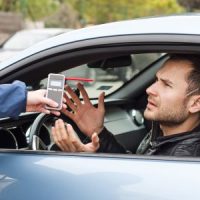Overcoming Adverse FST Results In A Florida DUI

The National Highway Traffic Safety Administration has approved three Field Sobriety Tests for use in DUI arrests. If a defendant provides a breath or blood sample, as most defendants agree to do, prosecutors use the FST results to establish probable cause for that law enforcement request. If the defendant refuses to provide a chemical sample, prosecutors typically use the FST results to establish intoxication. Therefore, FST results are vital in both test and non-test cases.
Arresting officers always testify that defendants “failed” all three of the tests outlined below, even if they cite minor technicalities to support their conclusions (e.g. the subject took eleven steps instead of ten). A Tampa DUI lawyer can challenge these conclusions at trial or at a pretrial suppression hearing. If these challenges create reasonable doubt in the mind of one juror, the defendant is not guilty as a matter of law. If an attorney sufficiently challenges FST results in a pretrial hearing, prosecutors know they’re in trouble, so they’re willing to make favorable deals.
Unapproved Tests
A few brief words about unapproved tests, such as the head-back and finger-to-nose Romberg balance test. Officers often use these tests to fatigue defendants, mentally and physically, so they do worse on the tests that count.
Sometimes, a judge excludes unapproved test results without much convincing. Other times, it’s better to force officers to defend such tests. The Romberg test, which measures things like proprioception and vestibular function, is a good example. Many officers have no idea what these terms mean.
Horizontal Gaze Nystagmus
Officers often administer this approved FST first. It’s the easiest one to set up and it has the highest compliance rate. In this test, which is also called the follow-my-finger test, officers look for involuntary pupil movements at certain viewing angles.
This test has so many flaws it’s hard to know where to start. Accuracy, or rather the lack thereof, might be the biggest flaw. When doctors conduct HGN eye tests in carefully-controlled environments, the test is about 80 percent accurate. That’s not a very high number. The accuracy rate plummets when one considers dark skies, uneven surfaces, flashing squad car lights, and other common HGN field test conditions.
Because of such issues, many Hillsborough County judges only allow prosecutors to use HGN test results for limited purposes, at most.
Heel to Toe Walk (Walking a Straight Line)
This test might be the signature DUI test. Subjects must walk a straight line heel to toe, forwards and backwards, without swaying or using their arms for balance. Additionally, subjects must follow the directions to a T.
Once again, field conditions affect test accuracy. Additionally, it’s very difficult to walk heel-to-toe in boots, high-heel shoes, flip flops, dress shoes, or anything other than athletic shoes. Finally, much like the OLS test, there’s almost no peer-reviewed scientific literature that supports the HTW as a reliable intoxication test.
One-Leg Stand
Generally, since it requires so much physical strength and mental alertness, officers administer this test last. Subjects must elevate one leg at a certain angle for a certain number of seconds. During this time, they must be as still as a statute. This test is full of minor technicalities, such as holding the leg at the wrong angle or lifting the wrong leg.
Work With a Dedicated Hillsborough County Attorney
A criminal charge is not the same thing as a criminal conviction. For a free consultation with an experienced criminal defense lawyer in Tampa, contact the OA Law Firm. We routinely handle matters throughout the Tampa Bay area.
Source:
nhtsa.gov/sites/nhtsa.gov/files/documents/sfst_ig_refresher_manual.pdf
